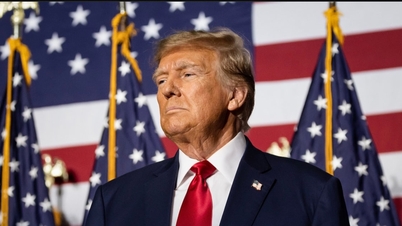The US does not have laws prohibiting private tutoring, but it does have regulations aimed at controlling issues related to teacher benefits and academic equity. These policies are primarily enacted by individual states or school districts.
 |
| In the US, the decision to take extra classes is usually based on each student's ability and circumstances, rather than following a trend. (Source: International Science Teaching Foundation) |
Public schools offer free classes.
One of the key principles of the American public education system is avoiding conflicts of interest. Many school districts prohibit teachers from tutoring their own students because teachers might be biased in grading, or students might feel coerced or pressured to participate in order to get better grades. Some districts even prohibit teachers from tutoring students from their own school.
For example, in New York State, the Great Neck Public School system does not allow teachers to tutor students within the same school.
In the Los Angeles School District (California), teachers are not permitted to charge for extra tutoring from students they teach in school. Teachers are encouraged to refer parents and students to the district's free tutoring services.
Also in California, some counties allow teachers to tutor students from other counties or private schools, as long as it doesn't interfere with their primary job.
In addition, many American public schools offer free after-school tutoring programs provided by teachers or volunteers, helping students, especially those who are struggling academically.
In fact, American schools often place a strong emphasis on developing extracurricular skills such as participating in clubs, sports , and volunteer activities, helping students hone their soft skills alongside classroom learning.
Private tutoring and the test preparation market: A lucrative industry.
Despite regulations controlling public school teachers, the private tutoring market in the US remains strong, particularly in the area of test preparation.
According to a report by market research firm Technavio published in December 2024, the private tutoring market in the US is projected to grow to $28.85 billion (approximately 735.1 trillion VND), with an annual growth rate of 11.1% from 2024 to 2029. Three main factors driving this growth are: the increasing focus on STEM education; the trend towards microlearning (short, focused sessions); and the widespread availability of open-source educational materials, which helps reduce learning costs.
Popular centers like Kumon (specializing in math and reading comprehension for elementary to high school students) and Sylvan Learning (offering courses to enhance basic study skills), along with other organizations such as Kaplan and Princeton Review (specializing in test preparation for standardized tests like the SAT, ACT, and GRE), have become popular choices for students wishing to improve their academic performance or prepare for important exams.
These centers operate as private educational businesses and adhere to state-specific educational business regulations as well as consumer protection regulations, ensuring quality of service. Not bound by the regulations applied to public school teachers, private tutors can earn high incomes, especially in large cities like New York or San Francisco.
The development of technology has also opened up many online learning options in the US. Platforms like Khan Academy, Coursera, and Udemy offer free and affordable courses, allowing students to proactively access knowledge without the need for private tutors.
Additionally, in the US, there are many online tutoring services such as Tutor.com and Chegg Tutors, offering flexibility and convenience for students seeking academic assistance.
Source









































































































Comment (0)